Editor's note: Directing the amendment of the Investment Law on the morning of September 18 at the Party Central Committee Headquarters, General Secretary To Lam requested: Thoroughly implement the direction in Resolution No. 68-NQ/TW dated May 4, 2025 of the Politburo on private economic development; must create a business environment that is open, transparent, stable, safe, easy to implement, low cost, meets international standards, ensures regional and global competitiveness; at the same time, remove existing "bottlenecks" and create more favorable conditions for business development. The regulations on investment incentive sectors and occupations need to cover all policies on developing renewable energy, nuclear energy, and new energy mentioned in Resolution No. 70-NQ/TW dated August 20, 2025 of the Politburo on ensuring national energy security until 2030, with a vision to 2045. In that spirit, Vietnam Weekly discussed with economic expert Nguyen Dinh Cung about the "institutional bottlenecks" in the draft that is being consulted by the people. |
Why is the mechanism for approving investment policies and registering investments considered a “specialty” of Vietnam, and what legal bottlenecks is it creating for the investment and business environment? In your opinion, how should the draft Investment Law (amended) be redesigned to approach international practices and remove this barrier?
Mr. Nguyen Dinh Cung : It is true that the mechanism of approving investment policies and registering investments is a legal “specialty” of Vietnam, only found in Laos and Myanmar, while China – which has a tradition of strict management – has also reformed and abolished it to approach international practices. No country in the world imposes a market entry mechanism in the form of pre-audit for most investment projects like we are doing. This is the biggest, most common legal bottleneck, and perhaps also the biggest barrier to mobilizing and allocating resources for development.
According to the draft Investment Law (amended), the current project classification mechanism is still cumbersome and contradictory. Specifically, the draft divides it into two groups: (i) the group that does not have to approve the investment policy; and (ii) the group that has to approve the investment policy. In group (ii), there is a “special favor” for some projects that are allowed to register for investment without approval. This approach is essentially “select for” – that is, the State allows some projects to be exempted from procedures – while the world has long eliminated this mechanism and is moving towards “selecting to eliminate”, that is, only keeping a very few high-risk projects that need to be controlled.

Economist Nguyen Dinh Cung
I think the draft needs to be rewritten with a more radical reform mindset. Specifically, three clear lists should be designed: List of projects that do not need approval or investment registration; List of projects that only need registration and do not need approval; List of projects that must have investment policy approval.
In fact, the draft does not clarify: is it mandatory for a project that does not require approval to be registered? Or is it necessary for a project that has been approved to be registered? These ambiguities create a double procedural burden, reducing the transparency and predictability of the legal environment.
The most feasible reform option is to retain only a very narrow list of projects under the Prime Minister’s approval authority, while all other projects do not need approval or registration. This is a common international practice, which both reduces the risk of “asking and giving” and frees up social resources for development.
In short, in the regulation approving the investment policy, the state agency approves both the investment target and scale, which is an intervention in the business autonomy of the enterprise, without any management goal but creates many unreasonable, uncertain, and unsafe barriers; increases costs, distorts the market and loses business opportunities for investors.
Currently, the Enterprise Law and the draft Law on Investment and Business have different definitions of “business” and “business investment”. What legal consequences does this overlapping but inconsistent definition have for businesses and the investment environment?
The Enterprise Law has defined the concept of “business” clearly and consistently and has regulated the issue of “conditional business lines and business conditions” before 2014. However, when these contents were transferred to the Investment Law and expanded to “conditional business investment and business investment conditions”, the concept became inaccurate, distorted in nature and created more unreasonable barriers to business activities in Vietnam.
The Enterprise Law defines “business” in a broad sense, covering the entire process from investment, production to consumption of goods and services for profit. Meanwhile, the Investment Law defines “business investment” simply as investing capital to carry out business activities. Here, “business” becomes an adjective to distinguish it from “non-business investment”. This makes “business investment” only a part, a small stage in the definition of “business” of the Enterprise Law.
This lack of clarity leads to many consequences:
Firstly, the Investment Law has overlapped with the scope of regulation of the Enterprise Law, while it should only focus on the formation and operation of investment projects (policy, registration, incentives).
Second, all conditions set for investment projects are based on pre-inspection mechanism, without post-inspection, creating additional procedural burden.
Third, the definition of “business investment conditions” in the Investment Law is essentially only a condition for being allowed to invest capital, not a condition for business activities. This forces investors to meet the requirements right from the stage of requesting approval or registration, making all projects – regardless of industry – considered conditional.
This approach contradicts the spirit of Resolutions 66 and 68 and the General Secretary’s directives, which emphasize the shift to management by norms and standards, and increased post-auditing based on risk and compliance. Thus, instead of facilitating, the current law and the draft are tightening, reducing transparency and hindering investment flows.
Can you give a specific example?
The draft stipulates investment and business conditions applied in the following forms:
a) License;
b) Certificate;
c) Certificate;
d) Confirmation or approval document from competent authority;
d) Other requirements that individuals and economic organizations must meet to be permitted to invest in business, even when no written confirmation from a competent authority is required.
Notably, the draft excludes norms and standards issued by competent authorities from the scope of business investment conditions. This provision reveals many limitations:
Firstly, it still leans towards pre-control thinking. The design continues to be prohibitive, restrictive and controlling, instead of shifting to a new post-control thinking, facilitating and supporting business operations.
Second, there is no clear distinction between pre-control and post-control. The current provision leads to the understanding that each industry and business has both pre-control and post-control, causing overlap and difficulty in application.
Third, it is not consistent with the reform policy. This regulation goes against Resolution 66, 68 and the direction of General Secretary To Lam in at least two points: (i) business conditions must be converted into norms and standards; (ii) the implementation of business conditions must mainly follow a post-audit mechanism, based on the risk level of goods and services and the compliance history of the enterprise.
In short, the regulations on investment and business conditions in the draft Investment Law need to be amended immediately to remove the "bottleneck of bottlenecks":
Firstly, clearly distinguish the conditions applicable to investment projects from the conditions applicable to business activities in conditional industries and professions.
Second, eliminate the default mindset that every investment project is subject to pre-audit conditions.
Third, bring back the regulations on conditional business lines and business conditions to the Enterprise Law as before 2014.
Fourth, design the system of conditions according to reform thinking: take post-inspection as the main thing, manage based on norms and standards, minimize pre-inspection and "request-grant" mechanisms as in the current draft.

Regulations on business investment conditions in the draft Investment Law need to be amended immediately to remove the “bottleneck of bottlenecks”. Photo: Nguyen Hue
How do you evaluate the preferential and investment support regulations in the draft Investment Law (amended)? Is there anything outdated in the current approach that is not in line with the requirements of innovation and the viewpoints in Resolution 50/2019 of the Politburo?
The investment incentives and support regimes in the draft Investment Law (amended) still follow the old path: incentives by industry, by region, using old tools such as tax, land, accounting. Although the draft has added the principle of "applying incentives according to the project implementation period and results", it does not provide criteria to measure "results", making the regulation unfeasible.
This approach goes against the viewpoint of Resolution 50/2019, which emphasizes the need to attract selective investment, taking quality, efficiency, technology and environmental protection as key criteria; prioritizing advanced, clean technology projects with added value and spillover effects. To do so, it is necessary to clearly establish indicators to evaluate the quality, efficiency, added value and spillover effects of the project.
In short, the regulations on investment incentives in the current draft are both outdated and do not meet reform requirements, and have not kept up with the goal of improving the effectiveness of foreign investment cooperation and the requirements of national economic development.
The provisions on suspending investment projects in the draft Investment Law are causing much controversy. In your opinion, what are the shortcomings of the current mechanism compared to international practices, and in what direction should it be adjusted to ensure both the rule of law and the protection of the legitimate rights of investors?
The current regulations on stopping investment projects reveal many shortcomings. If the State requires a stop, the enterprise must compensate for damages; and if the enterprise violates the environment, security or other laws, the relevant specialized agency must handle the case, without referring to the Investment Law. Attaching project objectives and scale to the approval procedure causes the management agency to deeply interfere with autonomy, creating barriers, increasing legal risks and discouraging investors.
International experience shows that, even when a business commits serious violations, the main solution is to impose heavy fines and force corrections, not to stop the project, because stopping will affect many related parties. If the State arbitrarily decides to stop, the question is whether the State is responsible for compensation? If not, the risk of international litigation against the management agency is inevitable.
In short, the current Investment Law is unique in Vietnam. It is a single knot with hundreds of child knots… creating a bottleneck covering the investment and business environment in our country. Therefore, if it is kept as the current draft, the bottleneck of bottlenecks in business law in Vietnam will certainly not be resolved.
The Ministry of Finance finds that the investment policy approval procedure as prescribed by the Investment Law has the following roles:
The first , investment policy approval is the basis and legal document that recognizes and guarantees the legitimate rights and interests of investors in implementing investment projects, ensuring the implementation of the State's commitments to investors on investment incentives and special policies approved by competent State agencies; at the same time, it stipulates the requirements and conditions for project implementation for investors.
Monday , the approval of investment policy is a tool to screen sensitive projects that have impacts and influences on socio-economic development, national defense - security, and the environment, and is a tool to control, ensure safety and sustainable development. International experience shows that many countries (including the United States, the United Kingdom, Australia, China, etc.) maintain a review/licensing mechanism similar to the investment policy approval procedure for investment projects according to the above criteria, especially for foreign investment projects.
Tuesday , the investment policy approval procedure is a procedure that integrates contents related to planning, land, environment, construction... The state management agency on investment simultaneously appraises these contents right from the project preparation stage to reduce implementation time and costs compared to carrying out each independent procedure on land, planning, construction...
In addition, the implementation of investment policy approval procedures helps the state management agency on investment to review the overall investment project in relation to specialized laws to assess the socio-economic efficiency and feasibility of the investment project. In case of not implementing the investment policy approval procedures but only implementing procedures according to specialized laws, the specialized state management agency can only evaluate the investment project according to the state management aspect of that agency, which lacks comprehensiveness and synchronization, and does not really ensure the efficiency and feasibility of the project.
Wednesday , the decision to approve the investment policy is the input procedure of administrative procedures to carry out the following procedures to implement the investment project such as procedures for land allocation, land lease, change of land use purpose, allocation of sea areas, construction and environment licensing, etc. Abolishing the procedure for approving the investment policy will lead to the requirement to fundamentally amend the entire legal system related to land, construction, environment, bidding, housing, etc., destabilizing the investment and business environment due to changes in policies and laws.
Thursday , the investment policy decision procedure in the Investment Law creates unity and uniformity in the legal system, avoiding the situation of "a hundred flowers blooming" in the order and procedures for project implementation of specialized laws, creating a transparent, clear, and accessible investment environment for investors.
Friday , the decision to approve the investment policy is a tool to carry out the inspection, supervision and evaluation of investment by investors and state management agencies on investment.
Therefore, the investment policy approval procedure is a necessary procedure in the management of investment and business activities in Vietnam. However, it is necessary to continue to amend and perfect this regulation in order to remove difficulties and obstacles and speed up the implementation of investment policy approval procedures, ensuring consistency and synchronization with relevant legal provisions. Vietnamnet.vn Source: https://vietnamnet.vn/vi-sao-nha-nuoc-cu-phai-chap-thuan-chu-truong-dau-tu-cua-doanh-nghiep-2446509.html |



![[Photo] Binh Trieu 1 Bridge has been completed, raised by 1.1m, and will open to traffic at the end of November.](https://vphoto.vietnam.vn/thumb/1200x675/vietnam/resource/IMAGE/2025/10/2/a6549e2a3b5848a1ba76a1ded6141fae)












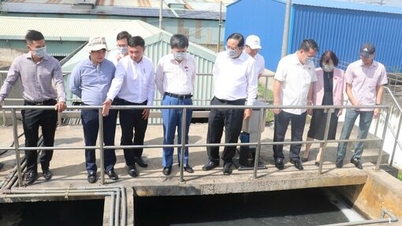







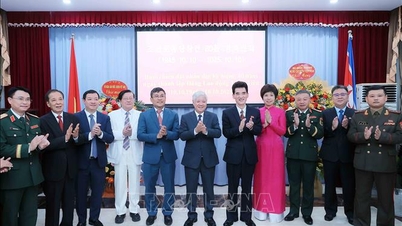
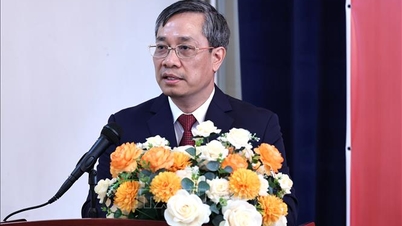
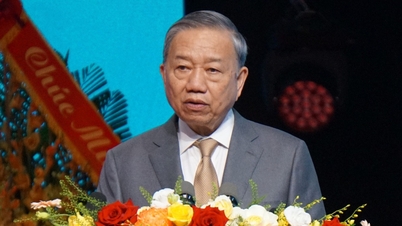

























































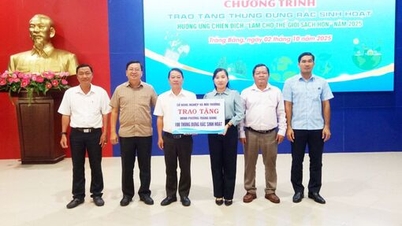
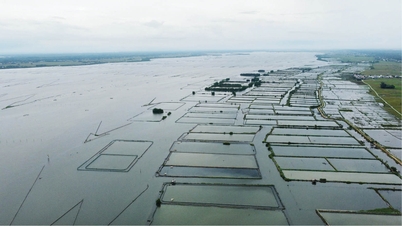




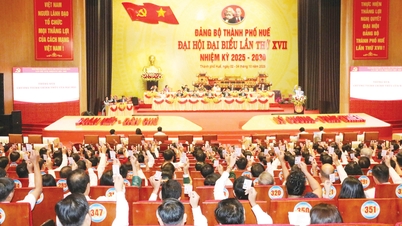













Comment (0)